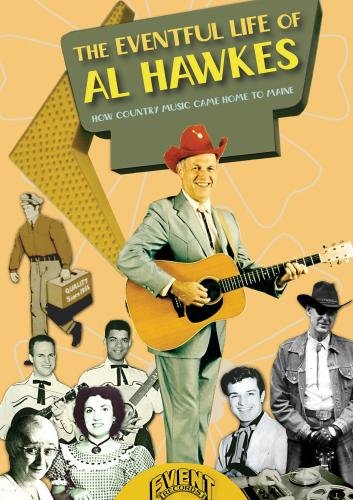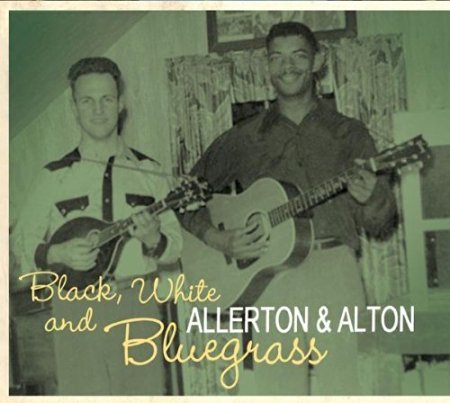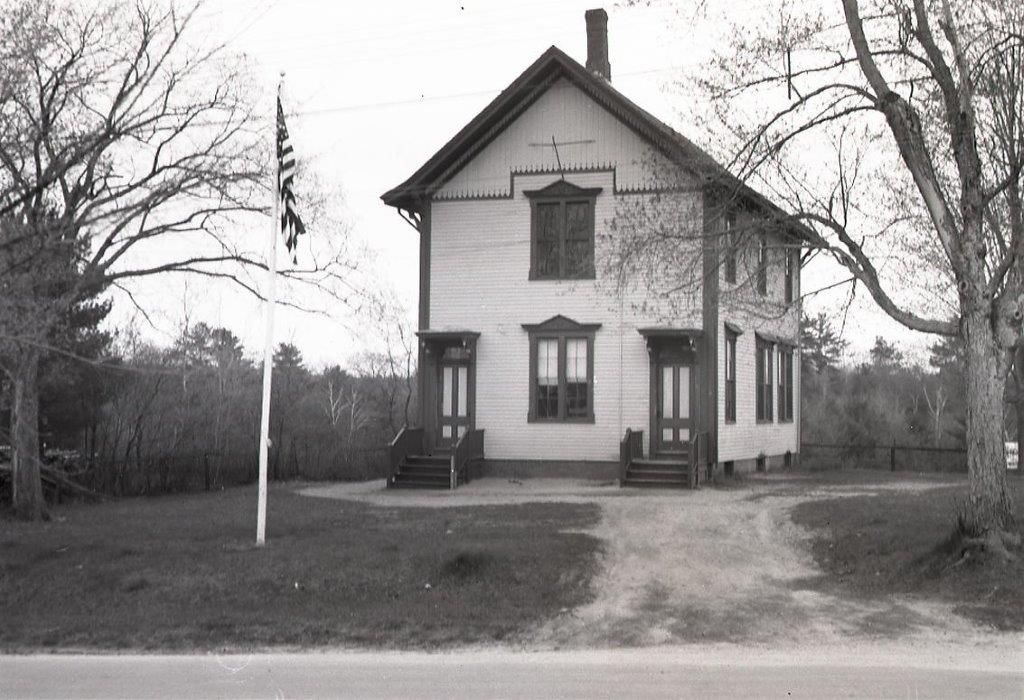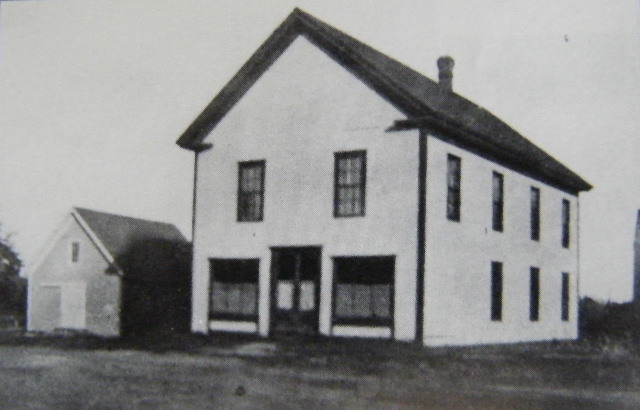By Julie Larry
Duck Pond Corner, a former rural village in Westbrook is bisected by one of the state’s busiest transportation corridors, Route 302. The Intersection of Duck Pond and Hardy Roads with Route 302 is a high-crash site and the Maine Department of Transportation (DOT) is proposing a roundabout to make the intersection safer. However, local residents are concerned about the amount of land needed for a roundabout and the impact a roundabout might have on the historic buildings adjacent to the intersection. Greater Portland Landamarks is working with Westbrook’s Duck Pond Historic District Committee to document historic resources in the area where the Maine DOT is proposing a new roundabout and to create a National Register Historic District in the village. Below is a picture of a community presentation on Westbrook's history from keepmecurrent.com
Probably the most well-known structure in Westbrook’s Duck Pond Village is the Giant Walking Serviceman. The sign was welded and assembled by Al Hawkes from 1955 to 1962 to advertise his TV and radio business. The sign was turned off in 1989 when the Hawkes TV store closed, but was recently restored to working condition by restauranteur Bill Umbel, owner of Lenny’s Pub.
In addition to his iconic sign and tv and radio business, Al Hawkes was a musician and owner of Event Records. He built a recording studio at Duck Pond Corner and began producing records by local Maine artists and popular Country and Bluegrass musicians "from away" while on tour in Maine such as, Dick Curliss, the Lilley Brothers, Lenny Breau, and Don Stover. Al was named a First Generation Bluegrass Pioneer by the International Bluegrass Museum in Kentucky, the National Instrumentalist of the Year in 1990 by the Country Music Association of America, and inducted into the Maine Country Music Hall of Fame in 1980. He was the subject of a Rockhouse Mountain Production’s documentary film The Eventful Life of Al Hawkes in 2010.
As a teenager in 1947, Al Hawkes, a mandolin player, formed a bluegrass duet with Alton Myers, an African-American guitar player. They called themselves, Allerton & Alton, The Cumberland Ridge Runners. According to John Rumble a senior historian at the Country Music Hall of Fame and Museum, Allerton & Alton, The Cumberland Ridge Runners are believed to be the only black and white duet in country music. [1] The duo performed live on Maine radio stations and those recordings were released on a set called Black, White and Bluegrass. The performing duo was unique, especially in context with the racial segregation of the 1940s and 1950s. When the duo traveled, even within New England, they occasionally faced issues of segregation. Hawkes recounts that he would sometimes check into a hotel and then sneak Myers into their room. Their performing ended when they both entered the military in 1951.
Duck Pond Village is the City of Westbrook’s last intact 19th century village. It grew up around a mill site on Mill Brook Stream near a present day dam at the south end of Highland Lake, formerly known as Duck Pond. Near the mill site was the Portland Wooden Ware factory. They manufactured products including shooks, lumber, pails, and tubs and employed around forty-five to sixty men. Locally known as the “Pail Factory," the factory building was demolished in the first half of the twentieth century, but nearby housing for some of the factory's employees remains.
While the factory was a major source of employment, most of the area families practiced subsistence farming, producing corn, hay, potatoes, peas, orchard products, and wool. These family farms remain along Duck Pond Road to tell the story of the area’s agricultural history. At the heart of this agricultural community was the Highland Lake Grange, Patrons of Husbandry No.87, formerly called the Westbrook Grange. The structure served as the social and recreational center of Duck Pond Village. The Grange’s stable (the small outbuilding in the image above) was moved across the intersection and is part of the current Highland Lake Variety store, where an addition was built to house a garage bay when the store had a Mobil Oil franchise.
Just across the intersection from the Grange was the Millbrook Dance Hall, a site for local recreation, where dances were held every Saturday night in the 1930s and 1940s. The hall closed in the 1950s and the building is currently in a dilapidated state. The hall was popular with locals and tourists that visited Highland Lake on vacation.
In a 1907 Board of Trade Journal, published by the Portland Chamber of Commerce, the lake is described as a “Vacationists Ideal” with excellent boating, fishing, good beaches, and unsurpassed bathing in its clean warm waters. At that time it was estimated that one-hundred camps were scattered around the lake shore and that the area was particularly popular with Deering and Falmouth locals looking to escape for a day, week, or entire summer.[2] Vacationers would travel from Deering by street car to Riverton and then hire a carriage for the remaining few miles to the lake. Within a few years, as automobile ownership increased, the close proximity to Portland (less than 10 miles) made for an easy journey to Duck Pond Village and Highland Lake.
[1] Cooper, Peter. “Interacial Duo Quietly Made History” The Tennessean. February 10, 201
[2] Hart, Lester. “Highland Lake, the Vactionists Ideal”, Board of Trade Journal, Volume 20. No. 1, Portland, Maine Chamber of Commerce, May 1907. Page 11-13.







